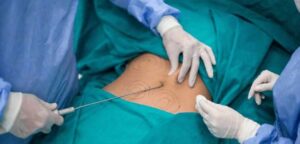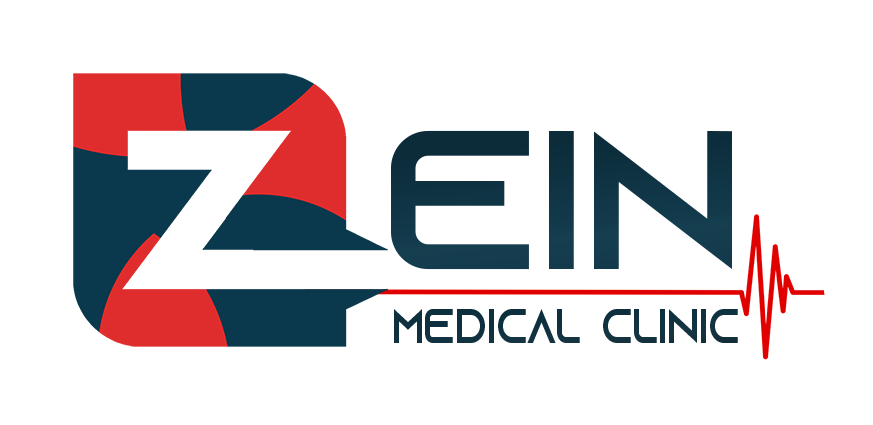Possible pain and swelling after liposuction and how to deal with it
Liposuction is considered one of the leading operations in the field of plastic surgery in the event that the patient suffers from obesity in certain areas of his body that do not respond to losing weight through diet or exercise, and one of the possible complications is the occurrence of pain and swelling after the operation. We will learn about this operation and how to deal with its complications.
A patient may be a candidate for liposuction if they have an excessive amount of fat in certain areas, but otherwise maintain a stable body weight.
What is liposuction?
Liposuction is a cosmetic procedure that removes fatty tissue and excess fat that does not respond to diet or surgery
Sports activities in order to improve the external appearance of the body, and the operation does not aim to lose weight, so it is necessary to continue on healthy diets and exercise even after the operation to ensure the continuity of the best results.
What are the possible side effects of liposuction?
Many complications and potential side effects are common after liposuction, and whatever method the procedure is performed, all methods share some side effects, but the best method for abdominal fat liposuction can be considered the one that results in the least amount of side effects, such as: Vaser, laser, and water liposuction. In all cases, the doctor must be qualified and experienced.
Among the common negative effects after liposuction are pain, bleeding, and the possibility of increasing cellulite after the operation, in addition to negative reactions to anesthesia, and there is a possibility of swelling, bruising, and poor wound healing. As for the more serious complications, they include:

Fluid buildup
After liposuction, excess fluid can build up under the skin, causing swelling and bruises, and to overcome this phenomenon, the doctor sometimes leaves the surgical incisions open and connects them with a tube to drain excess fluids, the tube Is removed after a day or two after the operation
Numbness
The patient’s feeling of numbness in the surgical area results from the liposuction process, and this feeling may last for a long time, and It may fade quickly, and the nerve located In the liposuction area may become irritated
Body asymmetry
There are some factors that may lead to asymmetry of the body shape as a result of the uneven removal of fat from the body during the liposuction process, so the skin will show signs of ripples and lumps, due to the poor elasticity of the skin, or the inability of the skin to recover quickly. When the cannula Is inserted under the skin, It may Some signs of scarring appear, all of these damages can last for a long time, or recover normally depending on the patient’s condition.
Harm to the heart and kidneys
When liposuction is performed, the level of fluids in the body changes as a result of the level of fluids absorbed by the body and entered through injections, and the level of fluids may change in a way that affects the heart and kidneys.
Inner holes
If the tube that Is inserted into the body during liposuction reaches one of the Internal organs, it may cause a perforation of one of the Internal organs, and here comes the need to perform emergency surgery to treat the organ that was pierced during the surgery.
Fat embolism
After liposuction, and as a result of fat fragmentation, part of the disintegrated fat may get stuck in a blood vessel, and may leak into the lungs or brain, causing what is known as a lipid embolus, or a state of fat embolism.
How to deal with pain after liposuction?
Often the pain resulting from liposuction, which is performed under general anesthesia, is more severe, and what distinguishes the pain after liposuction is that it is severe after two to four days of the operation, then its Intensity decreases.

Medicines and treatments available to reduce pain and swelling after liposuction
- After liposuction, you should not take NSAIDs, such as aspirin or ibuprofen, for at least a week after surgery because these medications can increase the risk of bleeding.
- After the operation, the patient is given a pain reliever medication prescribed by the doctor.
- Other medications that contain acetaminophen should be avoided without consulting a doctor because it may lead to liver damage.
- It is possible that the medicines prescribed by the doctor to treat the pain cause constipation, so it Is preferable to consult a doctor in the event that this occurs in order to treat it.

Tips to reduce pain and swelling naturally after liposuction
- It is preferable to talk to the doctor about pain-relieving medications so that the medication does not contain ingredients that slow blood clotting or increase the chances of bleeding during surgery.
- Over-the-counter supplements should be avoided because they may slow blood clotting. This is a particular concern with vitamin E, but there are many herbal products that have this effect as well. Be sure to discuss all of your supplements with your doctor before surgery and don’t try anything new during treatment.
- Compression garments should be used to reduce swelling and provide support for the areas that underwent liposuction, which helps relieve pain, provided that you do not press too hard.
How to deal with bloating after liposuction?
Abdominal bloating after liposuction occurs as a response from the body tissues after the surgery that took place, this matter is like any response from the body to the strange tools and equipment that entered It, and there are several things that are recommended when this happens to the patient through the placement of absorbent pads that are placed after a day Or two days after the operation, In addition to wearing compression garments or a bandage on the places of swelling, which will disappear within a week after the operation. Lymphatic drainage, or what Is called lymphatic massage, can also be used, which helps to get rid of waste and toxins from the tissues of the body.
How to get rid of other possible side effects after liposuction
Like any surgical procedure, the possibility of side effects is possible, and in order to reduce the occurrence of these symptoms, the patient must follow the following instructions:
- Drinking more water because it helps the body to recover quickly from the operation and to expel excess fluids.
- Physical activity and simple movement after the operation, with the aim of reducing fluid collection and proper drainage.
- Wearing a pressure corset, as it is necessary to wear it because it prevents the accumulation of fluids that cause ossification, And also helps the tissues return to their correct position.
- The use of lymphatic drainage or what is called lymphatic massage, which helps to get rid of waste and toxins from the tissues of the body.
When should you see a doctor?
After performing liposuction, the patient should see a doctor immediately if he has:
- Severe or prolonged pain.
- Severe swelling.
- Leakage of fluid or blood from the surgical site.
- Shortness of breath or chest pain.
This content has been approved by Zein Clinic doctors
To contact the doctor and provide a free consultation, click here:
Did you like our theme? You can share it with your friends now!
Read more:
Areas that can be liposuction and areas that should be avoided
The most important tips to maintain body shape after liposuction
Body sculpting and its most important techniques
Sources: Clevelandclinic


 واتساب
واتساب